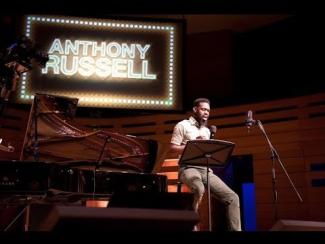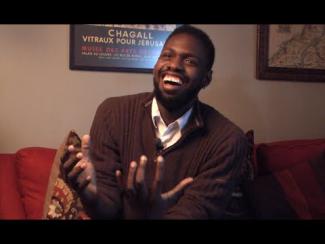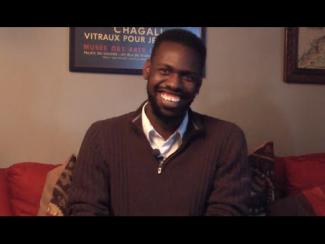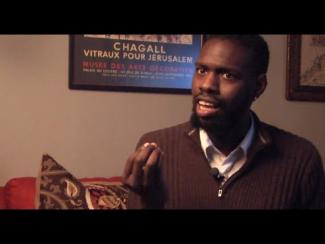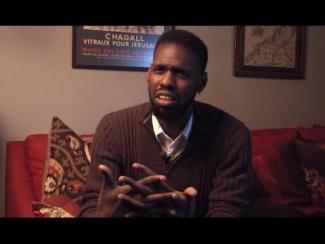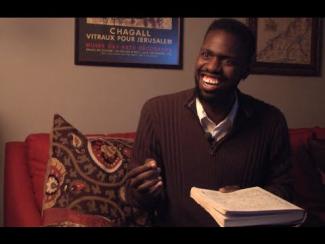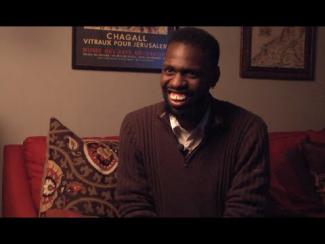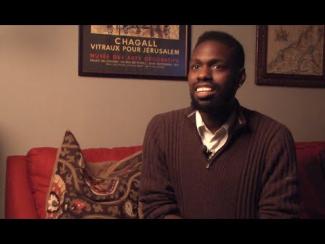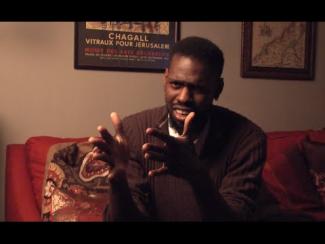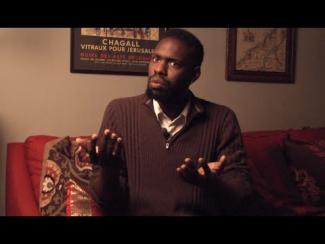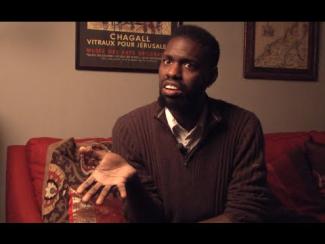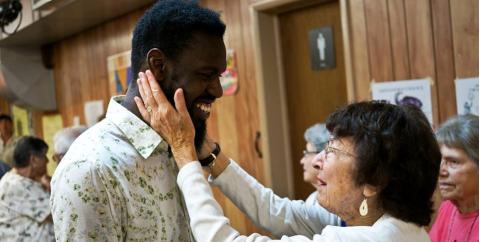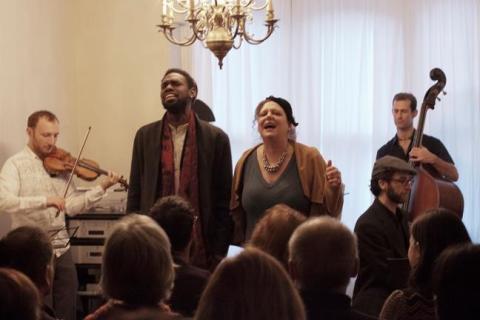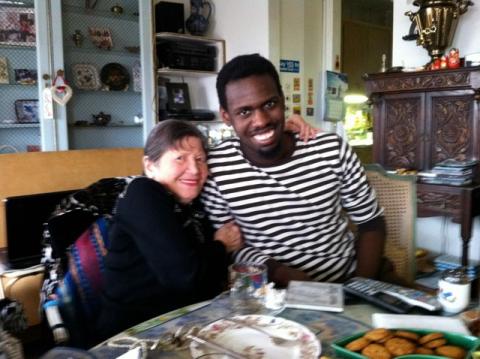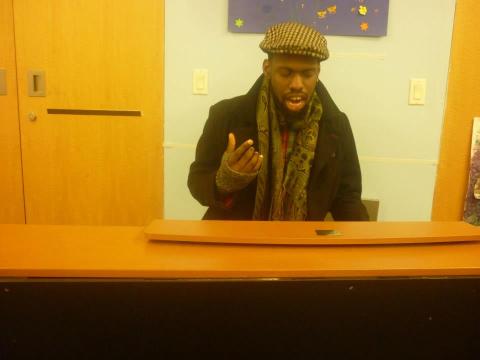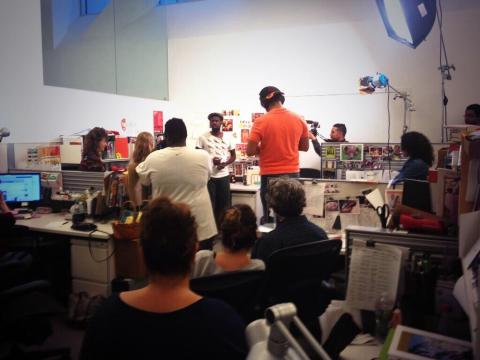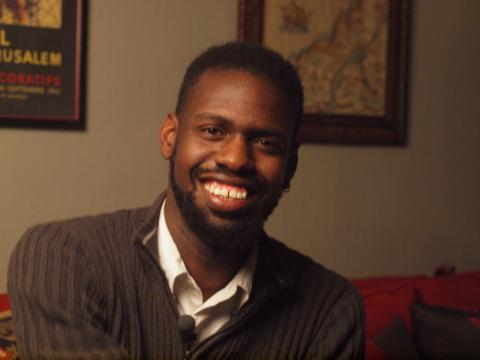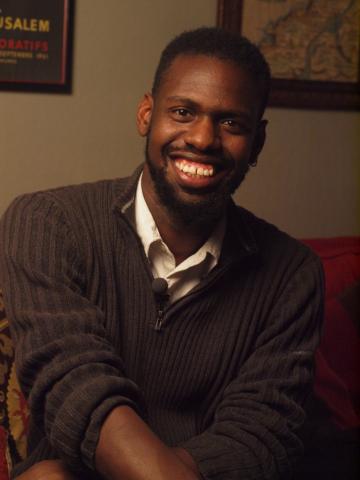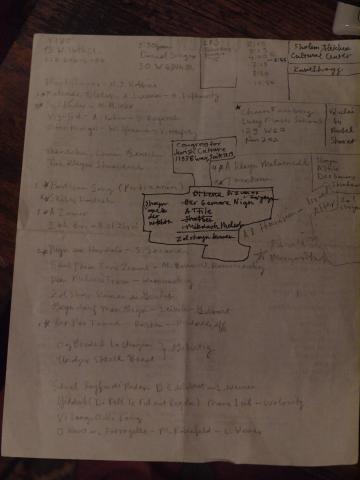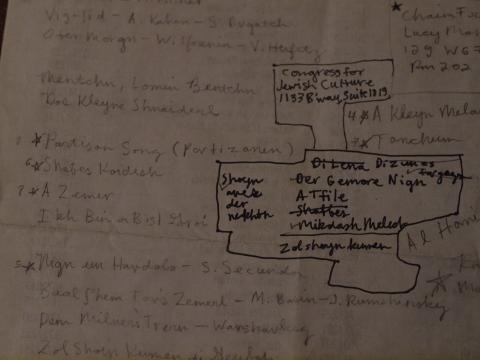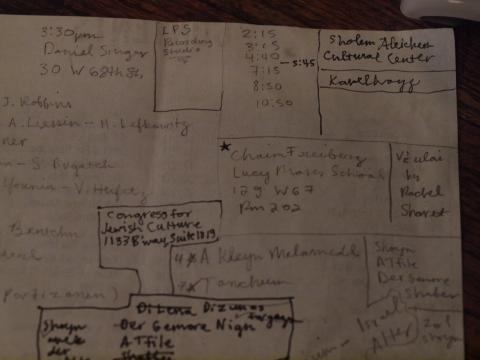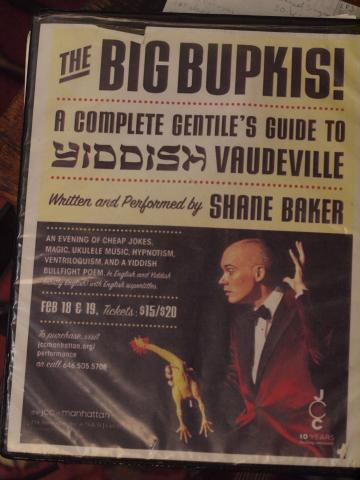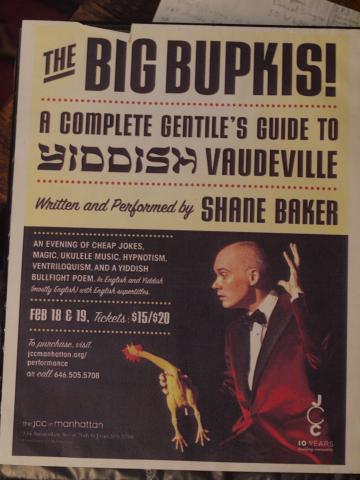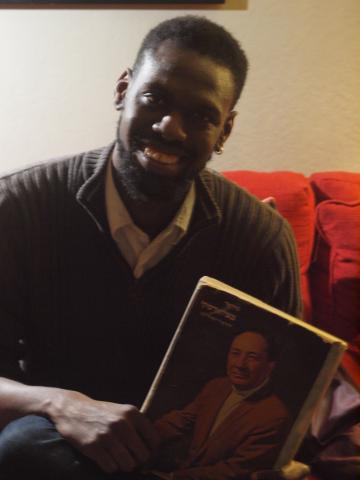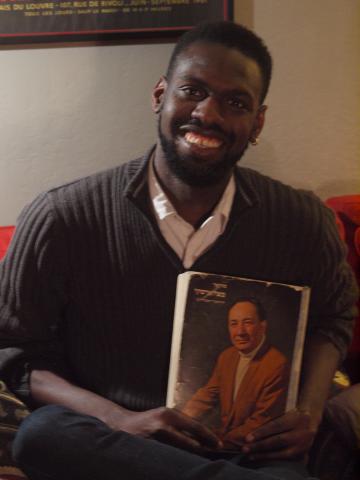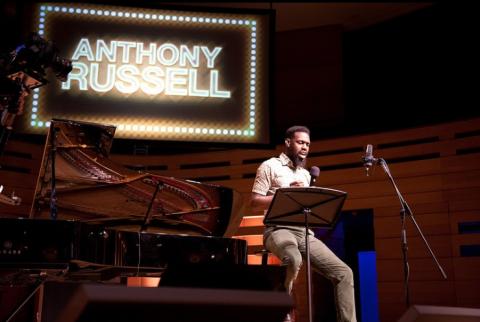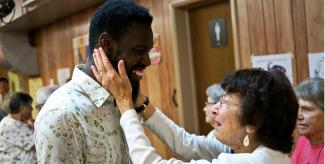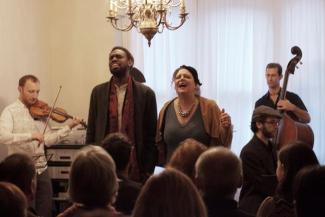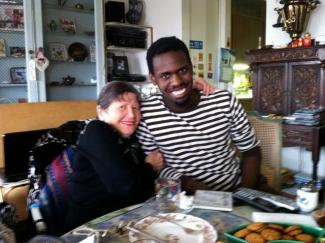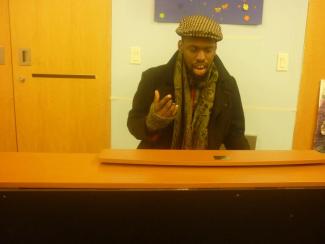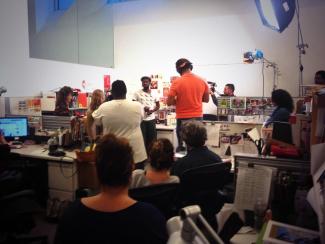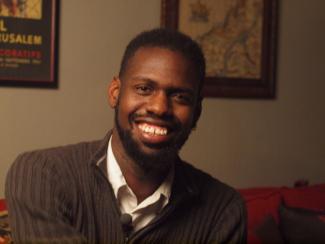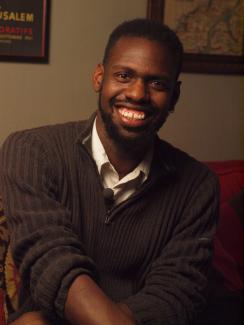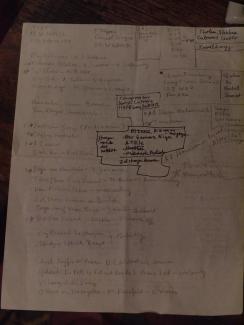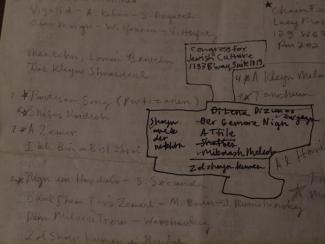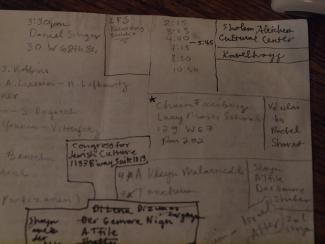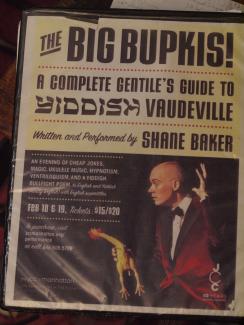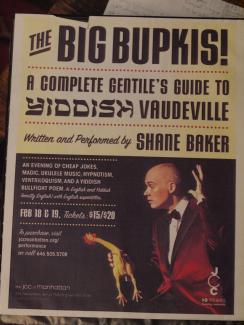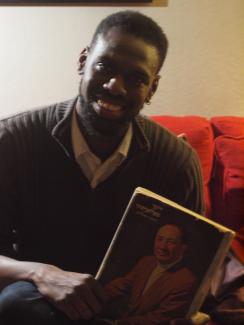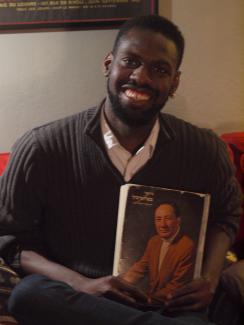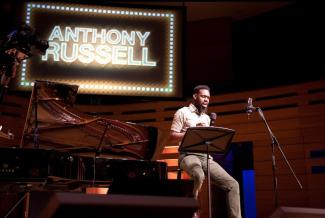The Yiddish Book Center's
Wexler Oral History Project
A growing collection of in-depth interviews with people of all ages and backgrounds, whose stories about the legacy and changing nature of Yiddish language and culture offer a rich and complex chronicle of Jewish identity.
Anthony Russell's Oral History
<p>Anthony Russell, trained bass opera singer and notable Yiddish art song performer, was interviewed by Christa Whitney on January 9, 2013 at his home in Oakland, California. The interview focuses on Anthony's experiences in forming his Jewish identity, his conversion to Judaism, career transformation from opera to Yiddish art song and folk performance, and relationship with the secular Jewish and black communities. </p><p> Anthony begins by discussing his family's geographic origins in Fort Worth, Texas. His childhood was spent in Connecticut, Virginia, and Mississippi, but Anthony considers his home to be in San Diego, California where his family settled down. He explains that literacy was incredibly important to his family and recalls how as a child he would often read the novelization of his favorite films. Much like his mother, Anthony is a self-motivated learner and autodidact.</p> Anthony then describes religion's role in his upbringing. The maternal side of his family was very religious, and Anthony learned from his mother's academic and intellectual rigor that she applied to church choir and Bible study. Reflecting on his upbringing, he notes, "little did I know this would become an asset to me as I would become a Jew." He recalls how his first exposure to Hebrew was with his homeschool group when a peer taught a phrase. Similarly important was when his mother bought him a copy of Fiddler on the Roof, which he watched "religiously." Anthony expresses surprise that Judaism wasn't more central to his early education, noting "if you grow up in a Christian surrounding, the connection between [Christianity and Judaism] is not obvious. Maybe that's for reasons of doctrine, or theology." Anthony discusses the development of his career. He explains how after informal lessons on several instruments, he learned his calling was opera through his exploration and memorization of many notable recordings. Within a year of voice lessons around age seventeen, he had already won a prestigious competition. That experience and his education informed the rest of his professional life. He also talks about the change in his career and about having difficulty finding work as a classically trained opera singer. He explains how after auditioning, he was usually cast as an understudy or chorus member. He describes the epiphany he had to change his professional expectations when he felt like giving up on his dreams after a career of spending more money than he was making. He tells the story of how he met his future husband, Rabbi Michael Rothbaum, in a New York production of Cosi Fan Tutte. With Rothbaum, Anthony dove into studying Judaism, attending synagogue and taking conversion classes. Anthony describes how he was struck by the song "Dem Milners Trern (The Miller's Tears)" when watching the Cohens' film A Serious Man with his husband. Anthony learned it was performed by Paul Robeson and written by Sidor Belarsky. He describes discovering the world of Yiddish art song through his research and studying the entirety of Belarsky's catalog through the Flor Atlantic University Judaic Sound Archive. His first song uploaded to YouTube, "Der Germore Nign," (sic.) Sidor Belarsky's arrangement of a Yiddish song, received wide exposure. The following year, Anthony performed at the Sholem Aleichem Cultural Center, the Ashkenaz Festival, and the Moscow Yiddish Music Festival. He recalls receiving feedback and guidance from experts such as Shane Baker, Itzik Gottesman, Benjamin Schecter, and Isabel Belarsky, the daughter of Sidor Belarsky. He concludes by describing his current work curating pairings of Yiddish art song and black spirituals, as well as his collaboration with artists Michael Winograd and Anthony Coleman. Anthony concludes by discussing the challenges he faces in his community by being black and Jewish. He also reflects on the importance of language in his own identity as well as the overall cultural milieu. He notes, "I found Yiddish at a very critical point in my life when I knew that I had feelings and ideas and ways of looking at the world that needed to be expressed. When I was looking for a way to express them, I found Yiddish… [my work is] meant for anyone with two ears and a heart."
This interview was conducted in English.
Anthony Russell was born in Texas in 1979.

